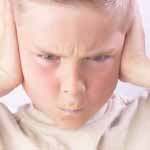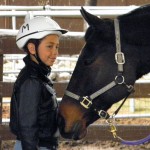 Bullying has become an all to common problem.
Bullying has become an all to common problem.
Oh I know, lots of you will say it has always been around, but I truly believe that it has gone to a whole new level.
We work so hard to help our kids feel good about themselves and to teach them to be kind and respectful of others, that they may feel uncomfortable standing up for  themselves when they are being mistreated. We teach children not to ‘tattle’ and ask that they try to handle things on their own, but at the same time we discourage them from fighting, even if it’s fighting back. And not standing their ground can damage self-confidence and lead to feelings of helplessness. Then when we ask, our children may feel ashamed that they are being bullied; they may feel there is some nugget of truth in what the bully is saying or that they may deserve
themselves when they are being mistreated. We teach children not to ‘tattle’ and ask that they try to handle things on their own, but at the same time we discourage them from fighting, even if it’s fighting back. And not standing their ground can damage self-confidence and lead to feelings of helplessness. Then when we ask, our children may feel ashamed that they are being bullied; they may feel there is some nugget of truth in what the bully is saying or that they may deserve  to be treated badly.
to be treated badly.
So, as parents we have to be very vigilant. This article in ScienceDaily, talks about research showing that nightmares may be an indication that a child is being bullied. Another report on NPR talks about the potential lifelong emotional and physical consequences of bullying.
Through work with horses we build self-confidence and increase self-esteem.  We help our clients develop coping and self-soothing skills, so that they can be more level-headed when faced with a stressful situation. We help them learn and practice problem solving skills so that they are better able to think through what may happen in a given situation. AND if a child or teen comes to us with aggressive behavior we work with them to learn and practice more appropriate ways of
We help our clients develop coping and self-soothing skills, so that they can be more level-headed when faced with a stressful situation. We help them learn and practice problem solving skills so that they are better able to think through what may happen in a given situation. AND if a child or teen comes to us with aggressive behavior we work with them to learn and practice more appropriate ways of  dealing with problems while helping them to develop empathy and compassion in their relationship with the horses.
dealing with problems while helping them to develop empathy and compassion in their relationship with the horses.
If you are concerned about the possibility that your child is being bullied or that they may be bullying others confront the situation. Talk to your child, talk to their friends, talk to the teachers and school administrators. We have a responsibility to stop this behavior. Don’t be one of those parents who, with tears in your eyes, states “I had no idea”.
or that they may be bullying others confront the situation. Talk to your child, talk to their friends, talk to the teachers and school administrators. We have a responsibility to stop this behavior. Don’t be one of those parents who, with tears in your eyes, states “I had no idea”.
